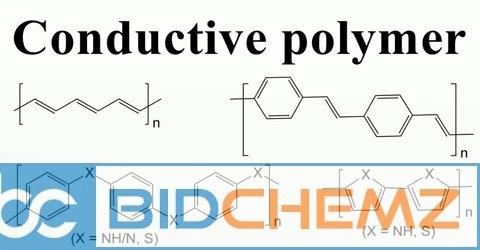The world of electronics has always been in a constant state of evolution, with new and innovative technologies being developed every year. One such technology that has been gaining a lot of attention recently is the use of conductive polymers in the semiconductor and electronics industry. Conductive polymers are a class of organic materials that have the unique ability to conduct electricity while still retaining their flexibility and durability. They have a wide range of applications, from flexible electronics to energy storage devices.
The use of conductive polymers in the semiconductor industry has been growing steadily over the past few years. One of the key advantages of these materials is that they can be deposited onto a wide range of substrates, including plastics, which is not possible with traditional metal conductors. This makes them an ideal choice for the production of flexible electronic devices such as displays, sensors, and batteries.
In addition to their flexibility, conductive polymers also have a number of other advantages over traditional metal conductors. For example, they are lighter, more durable, and have a lower resistance, which means that they can be used to create more efficient and reliable electronic devices. They are also more environmentally friendly than traditional metals, as they can be produced using less energy and with fewer toxic byproducts.
One of the most promising applications of conductive polymers is in the production of organic photovoltaic (OPV) cells. OPV cells are a type of solar cell that uses organic materials to convert sunlight into electricity. Conductive polymers are ideal for use in OPV cells, as they can be easily processed into thin films that can be deposited onto a wide range of substrates. This makes them an ideal choice for the production of lightweight, flexible solar panels that can be integrated into a wide range of applications.
The use of conductive polymers in the electronics industry is not limited to the production of flexible devices and solar panels. They are also being used in the production of energy storage devices such as batteries and supercapacitors. Conductive polymers have a high surface area, which means that they can store more energy than traditional metal conductors. This makes them an ideal choice for the production of high-capacity, lightweight batteries and supercapacitors.
At Bidchemz Marketplace, we are proud to offer a wide range of conductive polymers and other industrial raw materials to our customers. Our online B2B marketplace allows buyers and sellers to discover current market prices in real-time and helps them to buy and sell with confidence. We believe that the use of conductive polymers in the semiconductor and electronics industry is only going to grow in the years to come, and we are committed to providing our customers with the materials they need to stay ahead of the curve.
In conclusion, the use of conductive polymers in the semiconductor and electronics industry is a growing trend that is set to revolutionize the way we produce electronic devices. Conductive polymers offer a wide range of advantages over traditional metal conductors, including flexibility, durability, and environmental friendliness. They are an ideal choice for the production of flexible electronics, energy storage devices, and solar panels. At Bidchemz Marketplace, we are proud to offer a wide range of conductive polymers and other industrial raw materials to our customers, helping them to stay ahead of the curve and take advantage of this exciting new technology.

